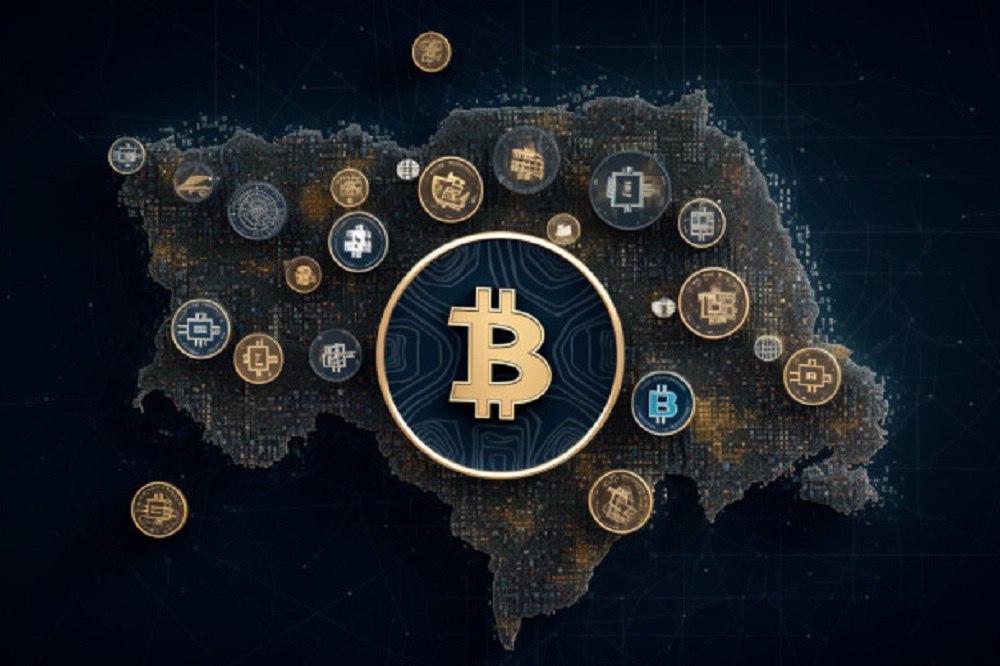The Central American nation made the headlines after announcing Bitcoin (BTC) as a legal tender, which has divided opinions among policymakers in different jurisdictions. However, crypto advocates celebrated the move seeing it as one more step towards the realization of mass adoption for digital assets.
The Bitcoin Legal Tender Pioneer
As the pioneer in adopting Bitcoin as its official currency, the Salvadoran government remains steadfast in its dedication to a blockchain-driven future, undeterred by crypto market fluctuations. Under President Nayib Bukele’s leadership, the country is more committed to the crypto project.
Despite the significant setback caused by the collapse of FTX, leading to speculations of the demise of digital currency yet again, the Bukele administration demonstrated unwavering ambition by announcing its daily purchase of one BTC. However, observers point out that despite the government’s strategic plan, the general population in El Salvador has yet to fully embrace and adopt Bitcoin as their primary means of exchange.
El Salvador officially announced that it had adopted Bitcoin as legal tender on September 7, 2021, following the bill’s proposal at the Bitcoin Conference in Miami on June 5. BTC was trading at approximately $50,000 then, and the market sentiment was highly optimistic.
Before the implementation of the Bitcoin Law, specific segments of El Salvadoran society had already embraced the use of digital assets as a medium of exchange. Although numerous businesses had previously been open to accepting Bitcoin as a form of payment, the declaration of its legal tender status now mandates operators to accept BTC as a means of transaction settlement.
Reasons For El Salvador’s Bitcoin Adoption
Economists noted that El Salvador exemplifies the original purpose behind the creation of Bitcoin. Nayib Bukele claims that around 70% of the population in El Salvador lacks access to traditional banking services, leading them to reside and operate within the informal economy.
Nevertheless, El Salvador’s mobile internet usage has soared, with the country boasting more than 9.94 million active mobile connections as of early 2023.
This statistic indicates that the country’s number of active mobile connections is approximately 156% of its total population. Moreover, the high level of mobile connectivity suggests that a financial service focused on mobile platforms, such as a Bitcoin wallet, would be significantly more accessible than conventional central banking systems.
Approximately a quarter of El Salvador’s gross domestic product (GDP) is derived from remittance payments, indicating that a substantial portion of the nation’s wealth originates from international transactions. Like several countries in Central America, El Salvador adopted the United States Dollar as its official currency.
The decision to transition from the Salvadoran colón, the previous national currency, to the USD was initiated by the El Salvadoran government in 2001. This shift was motivated by the belief that the US Dollar offered more excellent stability and security.
This move led to the gradual de-circulation of the colón and the widespread acceptance of USD as the country’s primary medium of exchange. Two decades after adopting USD as its national currency, the government is reconsidering its decision to rely on the American dollar.
Driven by his ambition to transform El Salvador into a cryptocurrency paradise, Nayib Bukele has pledged to establish Bitcoin City, a groundbreaking project on the slopes of a volcano. This visionary city will be constructed along the Gulf of Fonseca, located on the country’s southern coast.
The current status of El Salvador’s BTC holdings remains in a loss position. According to various reports, the country possesses approximately 2,546 BTC, acquired at a cost basis of roughly $108 million.
For these holdings to reach the break-even point, the price of one bitcoin would need to become $42,419. While some observers believe that El Salvador’s Bitcoin experiment is a failure, various data show it is successful as it showcases what is possible with Bitcoin and other digital assets.
